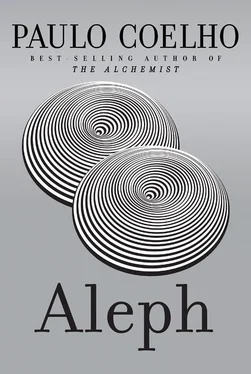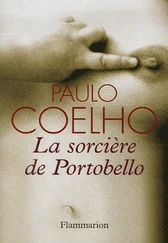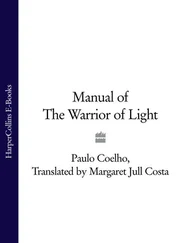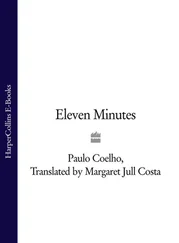“I’ve got a photo on my cell phone I’d like to show you,” says Hilal. “And I brought my violin with me, too, if anyone wants to listen to some music.”
We’re already listening to the music from the radio in the kitchen. The tension in the carriage is rising. Any moment now, someone is going to explode, and I won’t be able to do anything about it.
“Look, just let us eat our breakfast in peace. You’re welcome to join us if you want. Then I’m going to try to get some sleep. I’ll look at your photo later.”
There is a noise like thunder. A train passes, traveling in the opposite direction, something that happened throughout the night with frightening regularity. And far from reminding me of the gentle rocking of a cradle, the swaying of the carriage felt much more like being inside a cocktail shaker. I feel physically ill and very guilty for having dragged all these other people along on my adventure. I’m beginning to understand why, in Portuguese, a fairground roller coaster is called a montanha-russa , or Russian mountain.
Hilal and Yao the translator make several attempts to start a conversation, but no one at the table—the two publishers, the wife of one of the publishers, the writer whose idea this trip was—takes them up. We eat our breakfast in silence. Outside, the landscape repeats itself over and over—small towns, forests, small towns, forests.
One of the publishers asks Yao, “How long before we reach Ekaterinburg?”
“Just after midnight.”
There is a general sigh of relief. Perhaps we can change our minds and say that enough is enough. You don’t need to climb a mountain in order to know that it’s high; you don’t have to go all the way to Vladivostok to be able to say that you’ve traveled on the Trans-Siberian Railway.
“Right. I’m going to try and get some sleep.”
I stand up. Hilal stands up, too.
“What about the piece of paper? And the photo on my cell phone?”
Piece of paper? Ah, of course, the permission she needs to be able to visit our carriage. Before I can say anything, Yao has written something in Russian for me to sign. Everyone—including me—glares at him.
“Would you mind adding ‘once a day,’ please?”
Yao does this, then gets up and says that he’ll go in search of a guard willing to stamp the document.
“And what about the photo?”
By now, I’ll agree to anything if I can just return to my compartment and sleep, but I don’t want to annoy my companions, who are, after all, paying for this trip. I ask Hilal to go with me to the other end of the carriage. We open the first door and find ourselves in a small area with two exterior doors and a third leading to the next carriage. The noise there is unbearable because, as well as the racket made by the wheels on the rails, there is the grinding noise made by the metal plates linking the carriages.
Hilal shows me the photo on her cell phone, possibly taken just after dawn. It’s a photo of a long cloud in the sky.
“Do you see?”
Yes, I can see a cloud.
“We’re being accompanied on this journey.”
We’re being accompanied by a cloud that will long since have disappeared forever. I continue to acquiesce in the hope that the conversation will soon be over.
“Yes, you’re right. But let’s talk about it later. Now go back to your own compartment.”
“I can’t. You only gave me permission to come here once a day.”
Tiredness must be affecting my reasoning powers, because I realize now that I have created a monster. If she can come only once a day, she’ll arrive in the morning and not leave until nighttime, an error I’ll try to correct later.
“Listen, I’m a guest on this journey, too. I’d love to have your company all the time, because you’re always so full of energy and never take no for an answer, but you see … ”
Those eyes. Green and without a trace of makeup.
“You see…”
Perhaps I’m just exhausted. After more than twenty-four hours without sleep, we lose almost all of our defenses. That’s the state I’m in now. The vestibule area, bare of any furniture, made of only glass and steel, is beginning to grow fuzzy. The noise is starting to diminish, my concentration is going, and I’m not entirely sure who or where I am. I know that I’m asking her to cooperate, to go back where she came from, but the words coming out of my mouth bear no relation to what I’m seeing.
I’m looking at the light, at a sacred place, and a wave washes over me, filling me with peace and love, two things that rarely come together. I can see myself, but, at the same time, I can see elephants in Africa waving their trunks, camels in the desert, people chatting in a bar in Buenos Aires, a dog crossing the street, the brush being wielded by a woman finishing a painting of a rose, snow melting on a mountain in Switzerland, monks singing exotic hymns, a pilgrim arriving at the cathedral in Santiago de Compostela, a shepherd with his sheep, soldiers who have just woken up and are preparing for war, the fish in the ocean, the cities and forests of the world—and everything is simultaneously very clear and very large, very small and very quiet.
I am in the Aleph, the point at which everything is in the same place at the same time.
I’m at a window, looking out at the world and its secret places, poetry lost in time and words left hanging in space. Those eyes are telling me about things that we do not even know exist but which are there, ready to be discovered and known only by souls, not by bodies. Sentences that are perfectly understood, even when left unspoken. Feelings that simultaneously exalt and suffocate.
I am standing before doors that open for a fraction of a second and then close again but that give me a glimpse of what is hidden behind them—the treasures and traps, the roads never taken and the journeys never imagined.
“Why are you looking at me like that? Why are your eyes showing me all this?”
I’m not the one saying this, but the girl or woman standing before me. Our eyes have become the mirrors of our souls, mirrors not only of our souls, perhaps, but of all the souls of all the people on this planet who are at this moment walking, loving, being born and dying, suffering or dreaming.
“It’s not me… It’s just…”
I cannot finish the sentence, because the doors continue to open and reveal their secrets. I see lies and truths, strange dances performed before what appears to be the image of a goddess, sailors battling the fierce sea, a couple sitting on a beach, gazing at the same sea, which looks calm and welcoming. The doors continue to open, the doors of Hilal’s eyes, and I begin to see myself, as if we had known each other for a long, long time…
“What are you doing?” she asks.
“The Aleph…”
The tears of that girl or woman standing before me seem to want to leave by those same doors. Someone once said that tears are the blood of the soul, and that is what I’m beginning to see now, because I have entered a tunnel, I’m going back into the past, and she is waiting for me there, too, her hands pressed together as if saying the most sacred prayer God ever gave to mankind. Yes, she is there before me, kneeling on the ground and smiling, telling me that love can save everything, but I look at my clothes, at my hands, in one of which I am holding a quill pen…
“Stop!” I shout.
Hilal closes her eyes.
I am once more on a train, traveling to Siberia and beyond to the Pacific Ocean. I feel even wearier than I did before, and although I understand exactly what has happened, I am incapable of explaining it.
She embraces me. I embrace her and gently stroke her hair.
“I knew it,” she says. “I knew I had met you before. I knew it the first time I saw your photograph. It’s as if we had to meet again at some point in this life. I talked to my friends about it, but they thought I was crazy, that thousands of people must say the same thing about thousands of other people every day. I thought they must be right, but life… life brought you to me. You came to find me, didn’t you?”
Читать дальше
